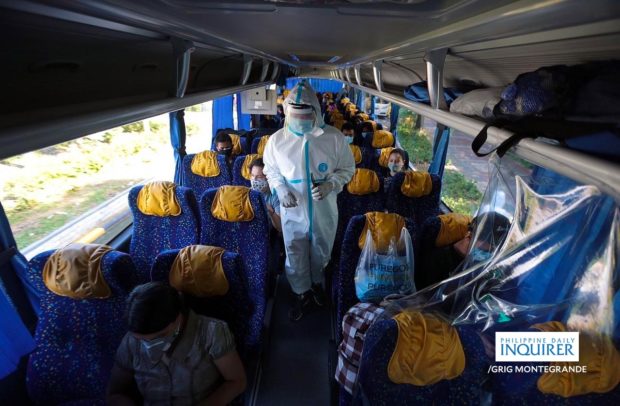
LOOK: The local government of Isabela dispatches buses to transport locally stranded individuals (LSI) in the metropolis to Isabela province on Wednesday, June 17. The buses are stationed at the Quezon Memorial Circle in Quezon City. – INQUIRER/GRIG C. MONTEGRANDE
MANILA, Philippines — Presidential Management Staff Assistant Secretary Joseph Encabo on Wednesday took exception to the concern expressed by local officials that stranded individuals sent back through the government’s Hatid Tulong program had contributed to the steep rise in the number of COVID-19 cases in their area.
Individuals helped by the program undergo rapid testing for the coronavirus and are confined in one area to minimize the risk of infection before they leave Metro Manila, Encabo said. Those who tested positive are not allowed to leave, he added.
“I think if there are [positive] cases like that, the local government units (LGUs) should assess and vet where the infected person came from,” Encabo said in the televised Laging Handa briefing, adding that these individuals could have traveled home with the help of other organizations.
Earlier, National Task Force COVID-19 chief implementer Carlito Galvez Jr. said that Eastern Visayas had recorded 66 new COVID-19 cases while Lanao del Sur had 30 new cases from returning residents.
Encabo said LGUs were not allowed to block the return of locally stranded individuals but they could subject the returning residents to rapid tests, quarantine and other medical protocols. Those who refuse to accept them would have to answer to the interior department, he added.
“It is a constitutional right of a person to go home,” Encabo said.
The Hatid Tulong program has helped more than 53,000 stranded individuals return home, while another 13,000 are awaiting assistance, he said.